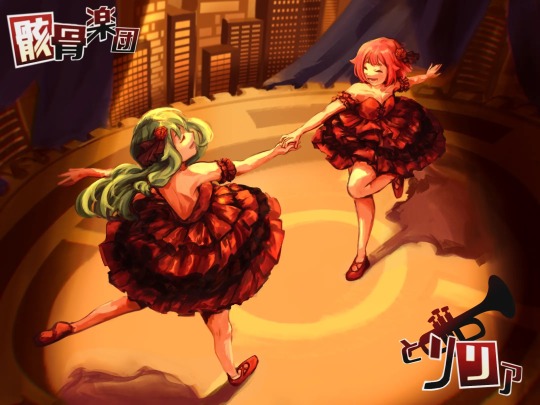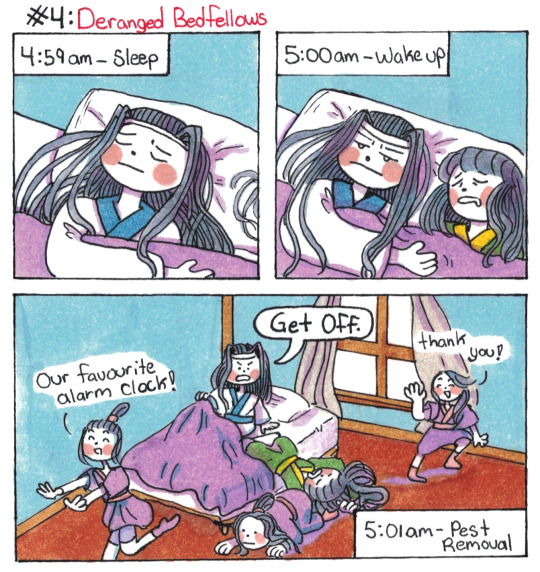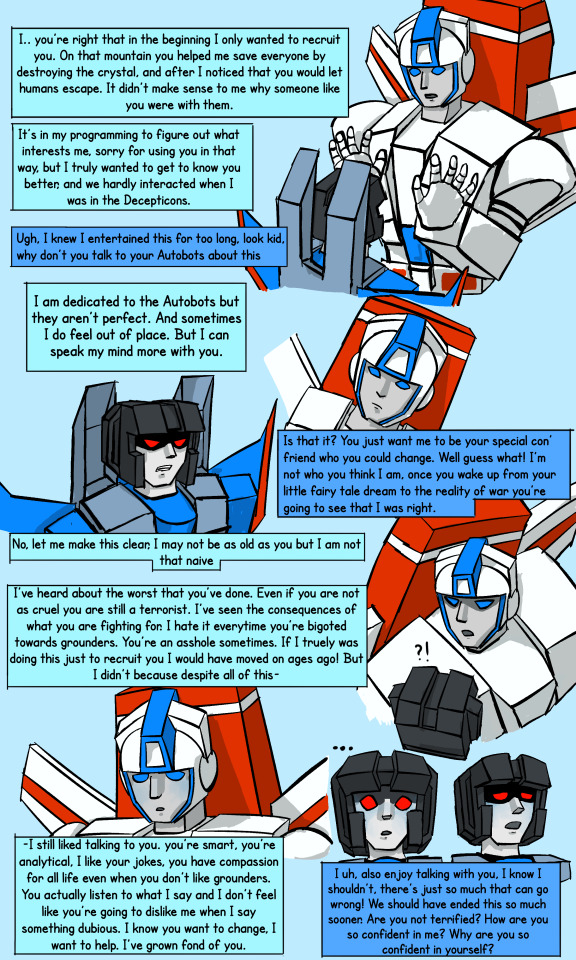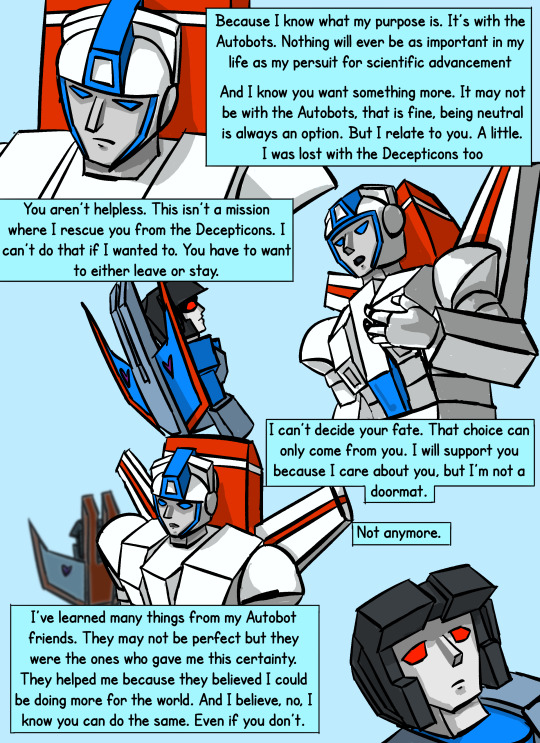#I have had like. an hour of sleep
Explore tagged Tumblr posts
Text
War and hate on planet earth
#I have had like. an hour of sleep#my body has now decided that is plenty and even though I am EXHAUSTED I am not allowed to go back to sleep#downstairs finally turned their heating back on but up TOO HIGH so now I'm fucking. suffering#I am SO HUNGRY despite ACTUALLY EATING SOMETHING FOR ONCE WHEN I GOT HOME#tell me what is the fucking POINT of eating if I'm just gonna be hungry either way#what is the POINT of WASTING MY FUCKING TIME trying to sleep when I'm gonna be fucking exhausted and miserable regardless#self care is fucking bullshit. what a fucking waste#I need to bite someone. hard.#like when cats grab your wrist and sink their teeth into your hand and kick at your arm w their back legs#except not as play. I need to kill someone#ash.txt
6 notes
·
View notes
Text
ok not to be that guy but like. labor rights and working class rights can coexist with 24h services and late amenities. its certainly hard to do so without worker exploitation in this political and social environment, it’s not a conflict likely to resolve overnight. but 24h services are important and especially valuable to those of us that are disabled or are on a different circadian rhythm. in fact more professional, health, and government services should be available or at least possible to work on asynchronously (if applicable) during late or odd hours, while workers also get sufficient pay for their labor and proper consistent scheduling. this would be much easier on the workers with night schedules if the entire professional world didn’t grind to a halt at 5pmEST
#just like. it doesn’t have to be this way#the number of people I’ve talked to who would absolutely do a night schedule if it didn’t suck ass because you can never get anything done#like. go to the doctor. without waking up at your equivalent of 2am to make their latest afternoon slot#the sleep deprivation of trying to keep a normal schedule and trying to get stuff done sometimes on my natural schedule are like#the same. I started getting fevers any time I stayed up longer than 14 hours bc I had to do it so often to make appts#it’s only a little better now because I’ve been strict with a schedule that’s somewhere in the middle#so I at least have 2 hours to try and do stuff before the entire country fucks off to bed#.txt
27K notes
·
View notes
Text
Also increasingly aware that a LOT of people "manage" getting through the 40+ hour work week by sleeping less than is healthy and relying on stimulants like coffee and energy drinks to keep them going.
For people who are unwilling or unable to do this...work really does just dominate your life. Like we really should not have to rely on unhealthy practices just to have a social life or keep on top of housework or whatever.
I know I post about this a lot but I'm so TIRED all the time and it's just so depressing that this is how we're expected to spend the one life we have.
#i have to get at least 8 hours of sleep a night to even barely function#with sleep#getting ready for work#commute#cooking#and errands#I typically have maybe 2-3 hours to actually do what i want in a day#and I'm usually too tired to actually do the things i want to do#and that's with a very short commute#if i actually had a long commute I'd basically do nothing but work#i see my friends like once every few weeks or months#because we're all so fucking busy with work and have such little time for socialising#and none of us even have kids or anything!!
27K notes
·
View notes
Text

Learning to celebrate the little wins!
#fersona#While I don't have the capacity to do Hourly Comics Day#I did journal my day hour-by-hour and the sheer difference in my self-care and routines is *staggering*.#Honestly both Feb 1 2024 and 2025 were rough days...but this year I had a far better outlook on it all.#The funny part is that when I drew this a few days ago I actually *was* celebrating not crying.#Might have still cried on Feb 1st. A meagre 4 times. But I also had lot of good moments!#January is a very hard month for me and frankly I've been in a fugue state for most of it.#Drawing helped me pull through these last 2 years but this year I've been finding myself so upset at how I can't seem to focus anymore.#So updates and posts have been slow. I'm just slow. I'm tired and burnt out from work and grieving.#But you know what? The days I do manage to post; I'm never shamed for how long it took. You're all just as excited and kind.#I'm coming home and eating better and sleeping more and spending time with loved ones.#This is all to say; you can be a lot happier when you realize that life can be taken a little slower.#I'm more grateful that words can possibly convey.#If you related to the mindset of constantly feeling like you've 'failed' the day; please know you have done more than you realize.#I'm struggling with it everyday! I'm in the trenches with you!#Life is too short and painful to not celebrate what you *do* accomplish! It's hard work but it is worth it!#Bit by bit...we will learn to live. *Really* live. And enjoy it!
2K notes
·
View notes
Text
does anyone know how to stop the body from keeping score? i have shit to do
#i have shit to do but i'm so bad at both going to sleep and staying asleep that it's been fucking up my life for years at this point#yes this about accidentally sleeping through class this morning but in my defense i had an atomic tummy moment at like 6 am :( which is#kind of my point? an reason for missing sleep shouldn't stop me from participating in my own life and i'm tired of rationing my waking hours#if sleep was optional i would be unstoppable essentially but alas. alack even. specifically a lack of sleep.#girl all the saints have it out for me today for skipping church on a holy day of obligation i guess. well fuck those guys.#a post
15K notes
·
View notes
Text
rat…ᘛ⁐̤ᕐᐷ
#YES i posted this already like half an hour ago but it had a major mistake bc i'm sleep deprived lmao so i am posting it again#if you saw the first one. well no you didn't#911 spoilers#lou ferrigno jr#tommy kinard#911 abc#(don't wanna remove the og tags bc it looks funny like that)#also don't have enough time in my life to be a constant hater but i also don't feel what i posted anymore#so now it's a rat
4K notes
·
View notes
Text
Dragons Rising really is the best sequel series for diehard Lloyd enjoyers, cause, yes, we acknowledge that he has panic attacks, crappy mental health, and also he's the grandson of God, but you know what really gets me? Lloyd is tired.
He's plagued with migraines (the visions are also migraines don't @ me), he's bemoaning about never getting a good nights sleep, hes struggling so hard to be a good leader and clearly doesn't have all the answers, and he's just some 20yo who's been cursed with saving the world since he was younger than his own students.
That's the realest way Lloyd could've ever been written in a future-series. It's what he is. But he's not angry (usually), he's not telling everyone to deal with it themselves, and he's not giving up. I love when Lloyd has finally had enough, but the real, genuine Lloyd? He'd never stop caring. He cares so much it'd kill him. He's tired and by god does he refuse to quit. I love that kid. Please get him a warm blanket
#ninjago#ninjago dragons rising#lego ninjago#dragons rising#lego#lloyd garmadon#ninjago lloyd#text post#look at me i LOVE when lloyd decides to go FCK ALL OF YOU. IM HAVING A BREAK.#or like he gets so mad he starts beating the sht outta people (which is borderline canon honestly)#i love him w anger issues but rn? when its been a few years in the future?#hes chiller. he still sounds mad angry sometimes (love that) but hes like no. im a hero#he doesnt say 'im the hero again. unfortunately.' he says 'unfortunately for the world im its hero'#he just wants to do good but he hasnt had 8 hours uninterrupted sleep for like 5 years#hes doing his best and hes spreading himself thin till he breaks and THAT my friends#that is lloyd garmadon#he only bites when hes pushed to the limit. and god does he hate being pushed to the limit#ANYWAYS
911 notes
·
View notes
Text
A compilation of Sung Jinwoo being a soft, gentle, protective, warmhearted gentleman 😌
(Eng Dub because Aleks' gentle voice is unmatched)
#sung jinwoo#sung jin woo#solo leveling#aleks le#10 minutes long... damn i had waaaay too much time LMFAOOO#what can i say it's always soft jinwoo hours in this household gang#missing my husband like a mf so this helps a little 🚬#from johee songyi esil cha haein jinho yoonho to chairman go... no one is safe from his rizz bro u better hide yo wife and kids#sung jinwoo the man you are#whenever you see some idiots on the internet saying jinwoo is an example of toxic masculinity slap them in the face with this vid pls#when he said “but still having you here is nice” to johee GIRLLLLLL I WOULD'VE DROPPED TO MY KNEES AND PROPOSED#the way he asked “did you get any sleep last night?” RAAAAAHHHHHHH DADDY JUST ONE NIGHT PLS#the headpat... THE HEADPATTTTT#need that kind of comfort than sex these days honestly#he's a natural flirt i'm sobbing i need him biblically#i feel like he's very popular with girls cause he's genuinely nice like he doesn't even mean to flirt he's just that nice and sweet#mama woo you have raised a very wonderful son thank you so much#i wanted to include his crying scene but tumblr won't let me post anything above 10 minutes i hate this site bro#also i've posted it before so
361 notes
·
View notes
Text
*gives you a gay little kiss that feels like home*
#wlw#wlw mood#sapphic#lesbian#sometimes you may see a post from me and go:#why the fuck would she post that??#and wonder if i regret it#the answer is no <3#all my posts are bangers😤#esp this one#and that is NOT the exhaustion and lack of sleep talking#maybe it’s late and i have to be up#in five hours#and i came to the realization that ALL my kisses count as gay little kisses#and had to share that with the internet#okay and it’s a GOOD post😤😤😤😤#im not gonna see this at a time when im more sane and be like wtf#i’ll see it be like: wow that’s a great post#@ future me: u can fight me on this im right okay#god im so tired
3K notes
·
View notes
Text

i'm sending this endless melody to a nameless you
#SKELETON ORCHESTRA AND LILIA I NEED YOU#project sekai#emunene#emu otori#nene kusanagi#pjsk#prsk#proseka#wxs cover wishlist copium.. 2!!#i have lots more of them i wanna draw but ill do st least one duet for each pair i think. maybe nnks next ive had one for them forever#Gyaaaa#Crying i have szks lunar new years art that idk how to render im missing the holiday. lord in heaven#Ik every leaker or whatever says this is going to mmj snd it probably will and i'll love the cover but still. emunene save me#wxs gets songs with nonsense lyrics its possible right Right right#i also wanted setsuna trip to go to emu in any duet but i looove the mnai cover so i won anways#Kind of too sleepy to do my usual. Sorry viewers who like reading theough my insane tags. Dont get covid it makes you sleep 13 hours a day#For the next month.#my friends saw me going nuts over this drawing actually and i gave up hard on nenes dress i just wanted to be done.. love how emus looks..#wait i actually can be insane in the tags THE WXS WORLDLINK SONG SJHDDYDJKYMY TGYAYDHUA!!! HAGSGYAAH!!!!! GY6;$;$;$;$;$ WHEHEHEHEHEH#WAAAAAAAAAAAAAAAAAUGH. Its so good please help. Wxs tetrad that illuminates the world save me.#why does the 2dmv have all of them under a WEDDING AROOOR WHY IS THERE A WEDDING BELL. CONGRATS ON POLYSHO MARRIAGE. HWATEVVRR!!!!!#wonderlands x showtime killing me taking damage augh Auughg akk akcghj
1K notes
·
View notes
Text

Lan Wangji Goes To Lotus Pier AU: Part 4: Deranged Bedfellows
(Part 1, Part 2, Part 3, Part 4.5)
#poorly drawn mdzs#mdzs#mdzs au#lan wangji#nie huaisang#Yungmeng Jiang training arc AU#This is the *first* part of what was supposed to be a much longer comic (LWJ's morning routine in full).#I'll finish the remaining part as a reblog to this post! I just think this is the funnier chunk.#Lan Wangji absolutely is the kind of person who has a perfect internal alarm clock for when it is time to get up.#He already has a dedicated sleep schedule. He is accurate within 10 seconds of 5am every day.#I think the Jiang disciples are most likely used to waking up around 6:00-7:00am#But the allure of having a guaranteed time keeper getting you up in the morning is worth the earlier hour.#I imagine they started outside lwj's door and slowly moved closer as the weeks went on.#Now LWJ has to cope with being way too warm in the night from all the extra body heat.#LWJ is not a fan of this but they scamper off immediately after he wakes up and they at least show initiative to follow routine.#NHS joins in only because he is a chronically heavy sleeper and needs this level of intervention to get up early.#His boldness would be a death sentence in the cloud recesses but here? Whole new game.#Yungmeng Jiang isn't a lawless land. It's just a land with different laws.#And one of those laws is to forcefully domesticate the catboy coded Lan boy through any means necessary.#Completely different tangent: I drew the thumbnail for this before I did comic 134. I then realized they had the same visual gag.#So I had to space this one out so it didn't seem like I repeated the waking up joke. That's my secret and all of you have to keep it.#And in my land the law is that snitches get itches (telepathically transfers hives onto your body)
1K notes
·
View notes
Text


but my heart is like a claw machine
#undescribed#bonk.png#great god grove#ggg#great god grove spoilers#ggg spoilers#isttvg spoilers#she/her for hector on this post please n thank you#i had a bunch of tags attempting to explain this whole thing n post game transfem hector hc but the og post didnt show up in the tags#n its like 5:30 something n i was already having trouble explaining it bc ive had like four hours of sleep so i sadly cant talk about gender#stuff like i wanted to in full detail so something something sanding self down to be nonthreatening n palatable#something something the way players (myself included) falsely believed king was a man despite many of us being trans or otherwise queer#n pre endgame king only being referred to with they/them something something men as the default as problem solvers as leaders the heroes of#the story something something hector's envy of the way king is loved n admired n able to be heard as herself#hector's fear of death n irrelevance driving her to do the shit she did n the main theme of isttvg (aside from transgenderism) being fear of#death n how denying yourself will cause you to become irrelevant in ur own life disconnected from everything as the years fly by#theres still time.#enjoy the bullet points its almost six am im gonna pass out#wiat also fixation on youth in both how we view n associate feminity n what is normally explored n portrayed with transgendering
180 notes
·
View notes
Text
WOAH Edwin art‼️

#dead boy detectives#dbda#dead boy detective agency#edwin payne#dbda art#dbda fanart#dead boy detective fanart#yeah. we need more edwin religious guilt in this fandom#LISTEN its sprinkled in a lot of fics but i need more focused on his religious guilt#anyway this took six hours and for the last like 2 of it i had a migraine so im going to sleep‼️‼️#snail.scribbles#also idk what the fucks up with the stained glass. i just doodled until it looked good#if you have any deep questions about the symbolism dont ask me i don't know 😔🫶
236 notes
·
View notes
Text
the cat in Flow made me emotional because it was so clearly an extremely adored animal that had been quite suddenly abandoned and instead of being silent it kept making the meowing sounds it was accustomed to make to communicate with whoever sculpted all those images of it. the person whose desk it was sleeping on next to an unfinished sculpture of itself. It's not a feral cat in a long-abandoned world because if it was it wouldn't make those sounds; feral cats don't do that. it keeps communicating distress and annoyance at no one in particular because it's used to there being someone around who cares about its comfort. hanging on the side of a boat meowing sadly because it's used to being picked up.
#whoa girl lack of sleep over a few days is going to make me cry over the animated cat#flow 2024#ngl the reason why this made me emotional is not because i'm much of a cat person. i'm not. it made me imagine once again what would happen#to my bird if i died or was forced to abandon her. that animal has been loved and helped in every way every day of her life#i have literally never in her 3 years had her spend a full day alone. if i can't be there i find someone she trusts etc#sometimes when we're playing it suddenly hits me that she doesn't even flap her wings when i swing her up and down#because she knows i won't ever let her drop. bwaahhh.#the idea of that trust ever being betrayed by anyone or anything or her being abandoned and not loved is extremely upsetting to me#like. the worst thing she has ever experienced is her nails being clipped by an inexperienced vet#the longest she has ever been alone is maybe 8 hours (emergency so couldn't find anyone)
100 notes
·
View notes
Text


Recruitment tactic no. ??? Be there for them when they try to push you away
I was thinking that this took place when Thundercrackers doubts and fears about Skyfires authenticity boils over, around the later half of the 20 year pining ark, so that Skyfire could have some character development when he’s not with Thundercracker, and Thundercracker starting to accept that he’s falling for Skyfire, and these little meet ups will become a problem that should be stopped as soon as possible. Although I like to think that Thundercracker loves when Skyfire shows that he knows what he’s talking about, that’s what attracted him to Megatron in the first place, so after this the crush got even worse, rip!
Something I’ve noticed about Skyfire is that he’s like, pretty sure of himself. He openly defected to Megatrons face and does not hesitate to take something on even when he is super outmatched, although that does makes him really reckless? Probably why Ratchet is working on him 24/7. He just seems like the type of guy that thinks he can land a plane even with the right instructions, but he’s still really nice! Although if something needs to happen he’s probably not going to wait around, he’s going to do it himself. His final words while fighting Sunstorm was ‘I don’t believe in destiny’ or something like that after all. I also like the idea of him being so direct that Thundercracker has a hard time processing it, getting insulted and then complemented in such a quick switch up how are you supposed to respond to that
About Thundercracker, there was a line in his description saying ‘he is persuaded because he wants to be persuaded’, which is why I had Skyfire ramble on for so long, Thundercracker probably wouldn’t stop him because he wants someone to convince him to leave. But Skyfire can’t understand why he doesn’t just do it. Hasn’t it been long enough? But the time that Thundercracker has spent with them is also why he is fearful to leave. This will probably be in the next part so maybe spoilers?? Thundercracker does like Skyfires attention and thought that he wouldn’t get attached to this bright eyed fool. But then that fool turned into a real friend, someone who was smart and not an asshole, then this affection turned into more fear, fear for himself, and this reckless, genius, idiot. He can’t defect now, it’s just going to put a bigger target on them, he should just… wait. For the next possible opportunity. This is something Skyfire can’t accept, he won’t force Thundercracker to do something, but to just wait around for destiny? That day may never come
#is this really an argument? it’s more like a disagreement#just two bots who care about each other even if they don’t completely understand#they both have their problems!#they’re trying though#I’m having a rough time nailing how they talk but it could be because I’m writing this on like#3 hours of sleep so forgive if my insane ramblings don’t make any sense#I might change this later on#there’s just so many directions that this ‘argument’ could have gone I had a hard time choosing#next one will probably be a fluffy comic and not a part 2 because I have a hard time ending these#I’m like Steffen mofat but I don’t hate women#transformers#transformers fanart#transformers g1#maccadams#skyfire#jetfire#Thundercracker#thunderfire#jetfire x thundercracker#tf AU#tf firecracker#thunderfire 4 decades au
99 notes
·
View notes
Text
Linktober day twelve- favourite game



Skyward sword! My favourite game forever :)) The duets with Fi are by far my favourite gameplay aspect and recurring scenes in the game.
The music is The Ballad of the Goddess with Link's harp accompaniment. I played through on three different instruments like fifteen times, and checked every note on ocarina before I carved it. So. It's very accurate. Close ups of the music +my reference because yes




Also I replaced the treble clef with the triforce
:)
#HIGHLY recommend you tap for quality on this one#linktober#Loz#Zelda#sksw#skyward sword#Fi#Smoll art#dirogjdifjdkfjkfjf#thank you to my friends in DMs who were patient with my fifteen panic attacks (/not literal) trying to carve this#this was very hard and I wanted to make it look good. so I struggled with being heavy handed in areas#this is the level of detail where if my hands started shaking I would have to stop and sleep and come back to it the next day#but I took breaks and stuff so I'm good. kind of. this took six hours for carving- plus like three hours the day before framing the glass#I've never framed glass with this technique so it was slow going#I love music so much#like halfway through doing the music lines (lines not the notes) I realised I had unconsciously started doing deep breathing exercises lol#I just stopped breathing for the notes fidjfjdjfndjf I care a lot hehe#I'm rambling now but that's ok. art <3#invisibly tagging:#sera Peggy Emmie and uni
181 notes
·
View notes